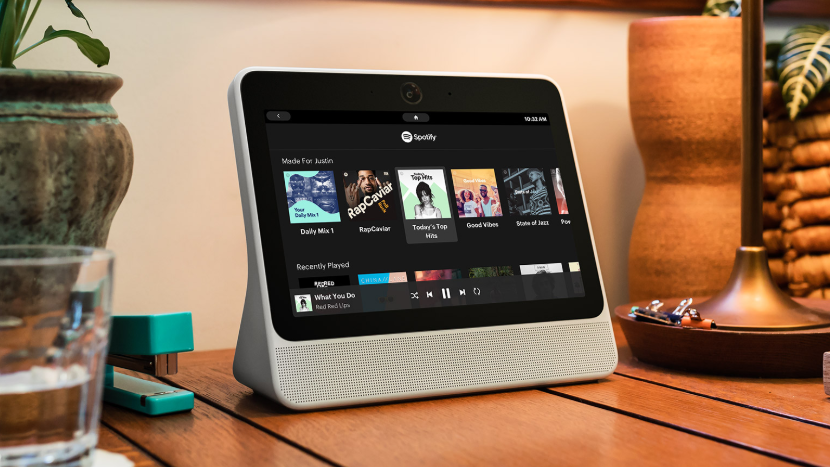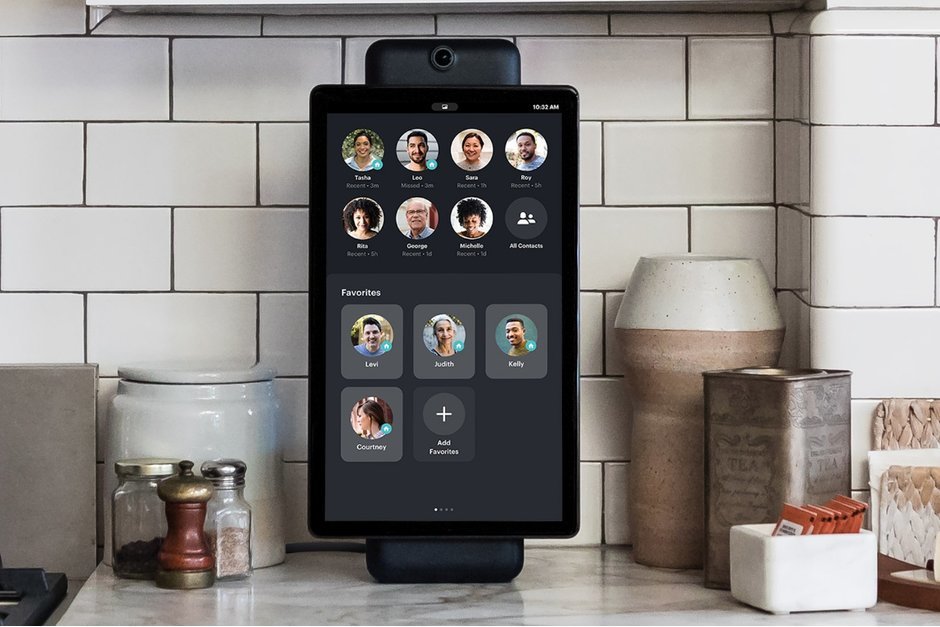Facebook fights for a spot in your kitchen

The next platform wars are unfolding in a confusing location: your kitchen bench. Facebook unveiled Portal this week, a new device with a screen, speaker and camera, designed to live on your bench for making video calls.
That's right, Facebook is seeking a spot for a video camera inside of your own home. Portal is designed as a dedicated video calling device that can't be moved around, living in a room of your choice as a permanent resident.
It's genuinely shocking how little Portal can actually do: there's video calling, content sharing, Messenger integration, photos and notifications (from Facebook), basic Alexa support (weird), and that's basically it. I'm late to covering the device, because I assumed it did more... but I was wrong.
Notably, YouTube, Netflix, Hulu, Podcasts and every other piece of content you probably care about is missing. It's a device, quite literally, designed to sit on your kitchen bench and wait for a video call, with few other actual selling points.
There are legitimately impressive video features, if you happen to use them:
The Portal is designed to simplify video chatting by having a wide-angle camera capable of identifying your body, then tracking you as you move around the room. It makes for more comfortable chatting than holding a phone up to your face for extended periods of time. Facebook says the Portal is designed to create the sense that you’re sharing one big room with the people you’re talking to, and considers the chats you have on the device an augmented reality experience.
With the Portal, you don’t have to hold, aim, or direct anything. Once a chat starts up, the device’s camera will automatically find people in the room and keep them in frame. If multiple people are in a room, the camera will use a wide angle to fit them all. If there’s only one person, the camera will zoom in to focus on their face. Facebook says this feature makes video chatting more natural, since you can just talk without worrying about camera angles.
Here's the thing: similar technology existed before, and people did not like it because it felt a little creepy. Microsoft launched the Xbox One with Kinect, a high-end camera, which touted a flagship feature: Skype.

At the time, it did the same thing, and slowly zoomed and panned to where you're sitting. The thing is, however, it ignored that the positioning of it on the other side of the room felt weird, with few people wanting to actually take a call from their couch because we've been trained to do it sitting close to the camera, or holding it in our hands.
Portal is also a head scratcher when Amazon's Echo Show and Google's new Home Hub offer similar products, but positioned very differently: as assistants that help you get things done.
Google actually omitted the camera on Home Hub, calling it 'creepy' to have in your home, which actually nails Facebook on another point: why does anyone need one of these in their house when they've already got a phone that can do just as well?
And that's the rub: are people so desperate to video call that this niche device needed to exist? Even if there were a niche for it, will that audience be hesitant to let a Facebook-owned camera in their house? What would compel them to spend $200 on this instead of a cheap tablet or Echo Show?
All of this is completely ignoring how brazenly Facebook is releasing this just days after discovering one of the largest data breaches of all time, weeks after the company was dragged in front of Congress for poorly protecting user data.
Even without any of this having happened in 2018, the same company is dogged by the persistent rumor that Facebook spies on everything you say through your phone's microphone, which is continued to be believed by thousands of people despite being proven to be false repeatedly.
For most of us, it appears in poor taste to ship such a product in 2018, but Facebook persists. It's only available as a pre-order right now, but it's a complete stretch of the imagination to see this device in thousands of homes.
What was Facebook thinking? The media has largely wondered the same, and has come up with few answers. The device itself looks fine, but yet again, I find myself wondering: 'what were they thinking?'
I suspect internally, they see nothing wrong with this.
Tab Dump
Microsoft promises to protect Linux from patent wars
I genuinely never thought I'd see anything like this from Microsoft, but it's betting the house on open more than ever before. It's cross-licensed more than 60,000 patents to the Open Invention Network, which protects those working on Linux-based projects. Wild!
The Music Modernization Act becomes U.S. law
Artists will be able to get paid easier for their work, particularly on streaming platforms, and addresses some of the old-school licensing problems that plagued the industry as it adapts to the new world of music.
Samsung's latest phone has four cameras on the back
Don't ask me why, but they did it because of the "Instagram generation."
